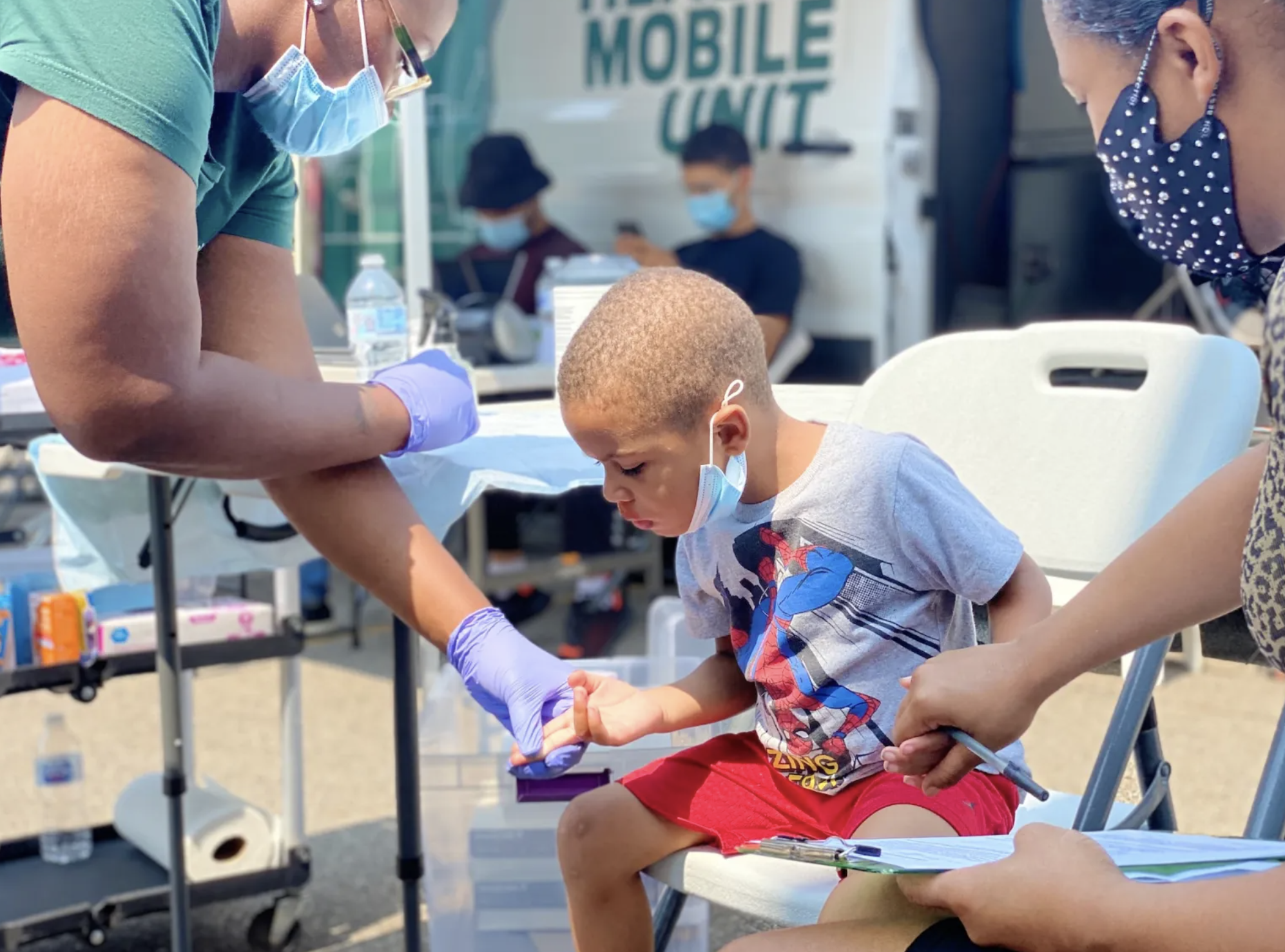
This article was republished here with permission from Planet Detroit.
By Nina Ignaczak, Planet Detroit
Gov. Gretchen Whitmer is expected to sign bills requiring doctors to test children for lead exposure at one and two years old following the Michigan Legislature’s Tuesday approval of the two-bill package.
The bills are essential in Detroit, advocates say, where 9.4% of tested children had an elevated blood lead level defined at 3.5 micrograms per deciliter. Statewide, 3.7% of tested Michigan children had elevated levels.
The package includes Senate Bill 31, sponsored by Sen. John Cherry (D-Flint) and House Bill 4200, sponsored by Rep. Helena Scott (D-Detroit). The Michigan Senate passed the bills by a 27-10 margin, with most Republicans voting against the measure.
Representative Phil Green (R-Millington), who voted no, told the Michigan Public Radio Network that he felt the law intruded into the relationship between physicians and patients.
“Ordering tests just for the sake of ordering tests is really a poor way of doing medicine,” Green said.
The bills require physicians to conduct blood tests during regular checkups and track the results as part of the child’s immunization record. Only Medicaid-enrolled children in Michigan must have their blood lead levels tested currently.
Michigan children had the third-highest percentage of kids tested with elevated blood lead levels in the country in 2021.
Children with elevated blood lead levels will be referred to the Michigan Department of Health & Human Services for intervention services.
Universal testing advocates say a lack of testing results in lead-poisoned children missing out on critical interventions. In 2022, less than a quarter of Detroit children were tested for lead, and under 16% statewide.
Lead is a potent neurotoxin that can impair learning, behavior, and hearing, potentially leading to reduced IQ and attention issues in children. When elevated lead levels are detected in a child, it’s crucial to eliminate exposure sources and use diet adjustments and iron supplements to decrease these levels. No amount of lead in the blood is safe.
Children are often exposed at home by ingesting lead-contaminated dust and paint chips – a particular problem in homes built before 1978 when Congress banned lead paint in residential settings. About 70% of Michigan homes were built before the lead paint ban, and approximately 4,000 children are diagnosed with lead paint every year, according to the Michigan Alliance for Lead Safe Homes (MIALSH). Many kids are likely missed due to a lack of testing.
“Universal testing will have the most profound impact on ending lead poisoning since lead paint was banned in 1978,” Ellen Vial, Detroit program manager for the Michigan Environmental Council, which convenes MIALSH, said in a statement.
The grandson of Detroit TaNiccia Henry, a Detroit Lead Advocacy Parent Group co-leader, was poisoned in her home by ingesting lead paint dust. “It’s a great day for children’s health and the health and wellness of the people of Michigan,” Henry said in a statement. “Lead testing needs to be mandatory for every single child.”
Advocates will push for additional legislation to reduce lead exposure, including bills to install lead water filters in all schools and childcare centers and to move a federal remediation program to state control.
Melissa Cooper Sargent, environmental health advocate for the Ecology Center, said the legislation will improve many children’s lives.
“Now, lead poisoning can be caught and treated before it devastates children’s mental and physical development,” she said in a statement. “All children will be better able to thrive at school, at home, and with friends.”
Catch more news at Great Lakes Now:
Grassroots greenspace projects expand Detroit’s open space network
Climate costs imperil Detroit’s unique, diverse Jefferson Chalmers neighborhood
Featured image: Aishani Moore gets tested for lead at a pop-up mobile clinic operated through Wayne Health in 2021. Photo by Nina Ignaczak




